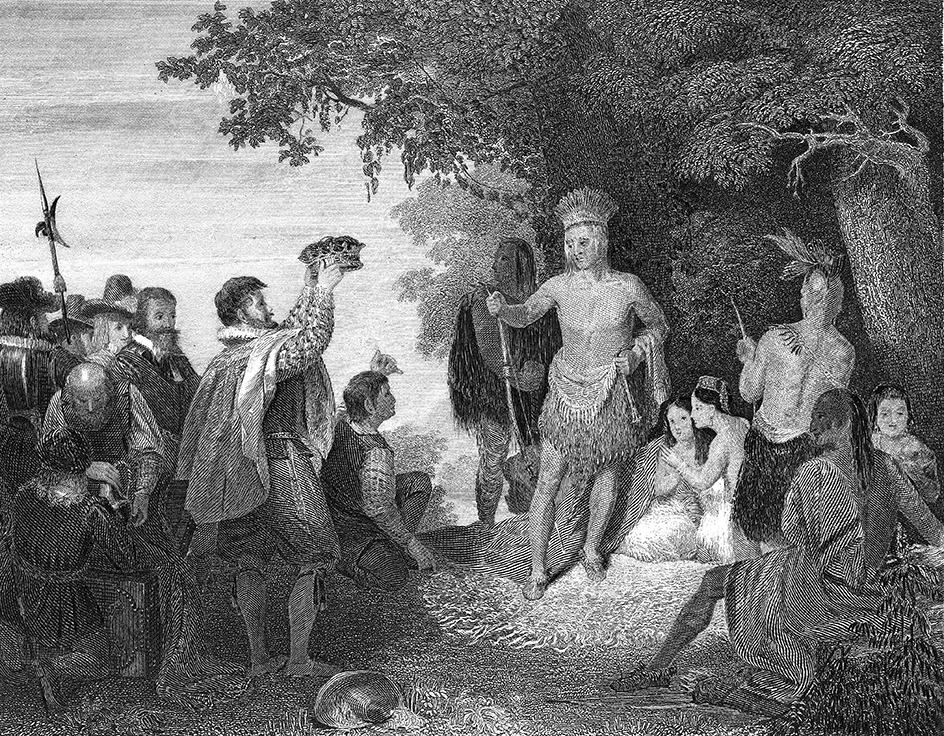Newport, Christopher (1560?-1617), was an English sea captain who commanded the fleet that first brought settlers to present-day Virginia in 1607. Newport helped establish the Jamestown colony, the first permanent English settlement in North America.

Newport was born in England in 1560 or 1561. He went to sea as a young man and served aboard privateering vessels that raided Spanish treasure ships and colonies in the Caribbean Sea. Newport became known as a skilled seaman, navigator, and leader. He gained his first independent command in 1590. That same year, Newport lost his right arm fighting the Spanish off the coast of Cuba. Two years later, he captured the Spanish vessel Madre de Dios, which held a valuable cargo of spices and gems. It was one of the largest seizures of Spanish treasure in the 1500’s.
Because of Newport’s navigational skills, knowledge of North American waters, and reputation as a mariner, the Virginia Company of London hired him to transport colonists to the New World (see London Company ). In December 1606, Newport, his crew, and more than 100 settlers left London aboard three vessels, the Susan Constant, Godspeed, and Discovery. During the voyage, Newport suspected the headstrong soldier and adventurer John Smith of plotting a mutiny. Captain Newport imprisoned and threatened to hang Smith, who later would serve as the leader of the Jamestown colony. Newport’s ships reached the southern entrance to Chesapeake Bay in April 1607. Newport helped select the colony’s location along the James River in May. In June, he returned to England to obtain additional supplies and men.
Newport sailed back to Virginia four times from 1608 to 1611. During his third voyage to Virginia, in 1609, he commanded the Sea Venture (also called Sea Adventure), which wrecked on the island of Bermuda. In the winter of 1609 and 1610, Newport and other survivors constructed two new vessels from the wreckage and then sailed on to Virginia. Many historians and literature experts believe these events provided the great English playwright and poet William Shakespeare with the inspiration for his play The Tempest (1611). In 1612, Newport went to work for the East India Company (see East India Company ). During his third journey to Southeast Asia, Newport died in present-day Indonesia in August 1617.
